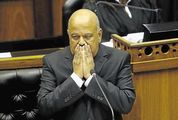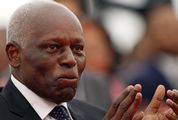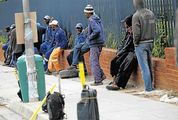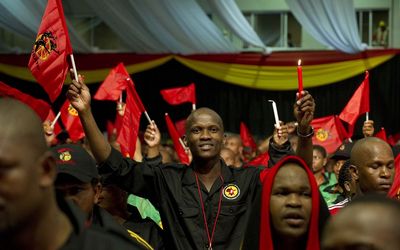I CAUGHT up in recent weeks with some of the general secretaries of the country’s largest industrial and public sector unions. While unions have been in the news in recent years for the politics emerging from their boardrooms, rather then their core business of representing workers, the past few months have drawn them back onto the shop floor due to what they describe as a job-loss bloodbath.
As the country’s top brass focus on averting a credit rating downgrade, employees are facing a similarly arduous battle on the shop floor to try to save their jobs in a low-growth, depressed economic environment.
For the first time, labour is tagging along with Finance Minister Pravin Gordhan on his roadshow to the UK and US, said Congress of South African Trade Unions (Cosatu) president Sdumo Dlamini.
Some union leaders remain caught up in internal politics and fights over investment companies, or are preoccupied with securing tenders for their spouses, but most are run off their feet, trying to keep up with retrenchments in their sectors.
National Union of Mineworkers general secretary David Sipunzi said last month his union’s membership had slipped from a high of more than 300,000 to 198,000.
This week, National Union of Metalworkers of SA (Numsa) general secretary Irvin Jim brushed off talk about politics. His union was the first and largest Cosatu-aligned union to turn its back on the alliance with the African National Congress, for which Numsa was expelled from Cosatu. But it is the shrinking manufacturing sector and the resultant job losses that are taking up most of his time now.
From Highveld Steel to Scaw Metals, and the engineering and motor components industries, all are feeling the pain. Jim says 40,000 jobs had been lost in the engineering sector by the end of last year.
On Thursday, he was at a meeting with the Dilokong chrome mine. He describes the closure of its smelters as economic sabotage by Eskom, which cut power to Dilokong for failure to pay its R5m electricity bill. There is talk that the move is part of a push by certain politicians who are eyeing the company’s mining licence. The mine employs 2,500 people.
Food and Allied Workers Union general secretary Katishi Masemola said the drought has hit the agricultural sector hard, but it is barely unionised, so it is difficult to get an accurate picture of the situation.
Dlamini says job losses are escalating — from mining to manufacturing, and now the retail sector.
While the federation’s largest unions organise in the public sector, the state is set to add to the squeeze. The state is SA’s largest employer, but it is freezing public sector employment from next month and cutting the number of public servants by 20,000 and the wage bill by R7.2bn over the next three years.
Former Cosatu general secretary Zwelinzima Vavi estimates that the expanded employment figures may well have reached 40%. He says union leaders are "running around like headless chickens", defending workers in firms undergoing retrenchment processes. "Workers have already hit junk status," he says. "It’s a full-blown job-loss bloodbath."
Jokingly asked whether there will be any workers to represent when the new federation he is helping to set up launches in May, he replied that working conditions are reminiscent of the pre-1979 period, due to the threat of unemployment. The danger, he says, is that basic conditions of employment may become an afterthought, as workers seek to hold on to their jobs.
The unions have turned to the government for help, and the Department of Trade and Industry is already assisting in the steel sector actively, for instance. Mineral Resources Minister Mosebenzi Zwane’s controversial decision to accompany Gupta negotiators to Switzerland when they sought to buy Glencore’s Optimum Coal was justified on the basis that it might "save jobs", although there is little evidence he has intervened at any of the other mines shedding workers.
While avoiding a credit rating downgrade is critical, the country’s political leaders have to show they are also doing everything they can to halt the effect of the economic situation on workers and the poor.
Students have risen up to show their frustration, it is only a matter of time before the workers do too.
• Marrian is political editor





















Change: 0.40%
Change: 0.47%
Change: -0.49%
Change: 0.53%
Change: 1.03%
Data supplied by Profile Data
Change: 1.71%
Change: 1.28%
Change: 0.40%
Change: 0.00%
Change: 1.64%
Data supplied by Profile Data
Change: -1.27%
Change: 0.00%
Change: 0.05%
Change: -0.08%
Change: 0.35%
Data supplied by Profile Data
Change: -0.02%
Change: 0.21%
Change: -0.06%
Change: 0.53%
Change: 0.70%
Data supplied by Profile Data